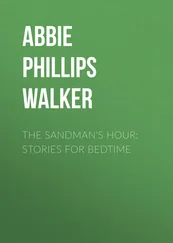Thomas Walker - The Depot for Prisoners of War at Norman Cross, Huntingdonshire. 1796 to 1816
Здесь есть возможность читать онлайн «Thomas Walker - The Depot for Prisoners of War at Norman Cross, Huntingdonshire. 1796 to 1816» — ознакомительный отрывок электронной книги совершенно бесплатно, а после прочтения отрывка купить полную версию. В некоторых случаях можно слушать аудио, скачать через торрент в формате fb2 и присутствует краткое содержание. Жанр: foreign_prose, История, foreign_edu, foreign_antique, на английском языке. Описание произведения, (предисловие) а так же отзывы посетителей доступны на портале библиотеки ЛибКат.
- Название:The Depot for Prisoners of War at Norman Cross, Huntingdonshire. 1796 to 1816
- Автор:
- Жанр:
- Год:неизвестен
- ISBN:нет данных
- Рейтинг книги:3 / 5. Голосов: 1
-
Избранное:Добавить в избранное
- Отзывы:
-
Ваша оценка:
- 60
- 1
- 2
- 3
- 4
- 5
The Depot for Prisoners of War at Norman Cross, Huntingdonshire. 1796 to 1816: краткое содержание, описание и аннотация
Предлагаем к чтению аннотацию, описание, краткое содержание или предисловие (зависит от того, что написал сам автор книги «The Depot for Prisoners of War at Norman Cross, Huntingdonshire. 1796 to 1816»). Если вы не нашли необходимую информацию о книге — напишите в комментариях, мы постараемся отыскать её.
The Depot for Prisoners of War at Norman Cross, Huntingdonshire. 1796 to 1816 — читать онлайн ознакомительный отрывок
Ниже представлен текст книги, разбитый по страницам. Система сохранения места последней прочитанной страницы, позволяет с удобством читать онлайн бесплатно книгу «The Depot for Prisoners of War at Norman Cross, Huntingdonshire. 1796 to 1816», без необходимости каждый раз заново искать на чём Вы остановились. Поставьте закладку, и сможете в любой момент перейти на страницу, на которой закончили чтение.
Интервал:
Закладка:
The earliest official information, as to the plan and the buildings of the Depot, is found in a long report by General Beathand dated 13th January 1797; later official reports and documents, paragraphs in the newspapers, and other sources of information show that the original plans were modified and expanded as the work of the prison progressed.
The timber framework of the building was made in London, and was carted down to Norman Cross, where 500 carpenters and others were employed day and night, and seven days a week, those who would not work on Sunday being discharged. The erection of the prisons, the accessory offices, and the barracks for the Military Guard progressed very rapidly, and on the 4th February (nine days before the Barrack Master-General applied for the order to start the work!) such progress had been made that the Admiralty instructed Mr. Poore, a surveyor, to proceed to Stilton “to survey the buildings erected near there for the confinement of prisoners of war.” He did so, and reported that a portion of the building was already complete. General Nicolls, the officer commanding the district, was sanguine enough to report on the 13th February that the prison at Norman Cross would be ready in about three weeks for the reception of prisoners from the citadel (Plymouth).
This estimate of the date when the barracks would be finished was too sanguine, although the work was being carried out with all possible speed. By the end of January the sum of £6,000 had been paid to and disbursed by Mr. Adams in wages alone. 10 10 The sum of £14,800 was paid to Adams between the 1st January 1797 and 29th November 1797 in the following instalments: The total amount paid to 19th November 1797 for the Norman Cross Prison was £34,518 11 s. 3 d. , for Hull £22,600, for Lewes £12,400, and for Colchester £15,620.
The total amount paid on account of the Norman Cross Depot up to the 19th November 1797 being so large, while the large expenditure on the alterations of old prisons and fortresses in the country was going on simultaneously, it is not surprising that on the 14th April 1797 a question was asked by an economist in the House of Commons as to the extraordinary expenditure on barracks; nor, looking to the rate at which the building of the Norman Cross Depot was being pushed forward, can we be surprised at the curt reply of the Secretary of State: “Extraordinary exertions involve extraordinary expenses.”
There is reason to believe, however, that the question was not put without good reason. The want of method and the overlapping of departments were not conducive to clear statements of accounts. The action of the newly appointed Transport Board in commencing the building of the prison, while the Barrack Master was refusing to undertake this urgent work because he considered that official routine had been neglected, has already been alluded to. The Barrack Master’s Accounts were very confused. In the Records of the Audit Office (Roll 354, Bundle 146, Declared Accounts) the total expenditure by the Barrack Master at Norman Cross, from 1st January 1797 to Christmas 1802, is only £5,175 3 s. , and it is evident that the sum of £34,518 11 s. 3 d. does not appear in the Barrack Master’s account. The total expenditure of his department amounted, when an inquiry was held, in 1802 to £1,324,680 12 s. 5 d. and there was a deficiency of £40,296 9 s. 11¼ d.
Out of the confused chaos of figures there emerges the interesting fact that, between the 25th December 1796 and the 24th June 1797, £390 10 s. 1 d. was spent on coals supplied to the Norman Cross Depot! A large coal bill for half a year, when we consider that in none of the blocks occupied by the prisoners, excepting the hospital blocks, was there any artificial heat.
As the work went on, there were, as has been already stated, various alterations in the plans; thus in February and March 1797 it was ordered, that a hospital for the sick should be provided by adapting some of the blocks originally intended as prisons to this purpose, and that increased accommodation for prisoners should be obtained by adding a storey to each block in course of erection, in preference to multiplying the buildings.
On 21st March a payment was made to Mr. Poore of £142 2 s. for his services in surveying and settling the establishment at Norman Cross. This shows that within three months from the commencement of the buildings they were in a sufficiently advanced condition to make the consideration of the necessary staff for the administration of the prison when it should be opened, a matter requiring Mr. Poore’s immediate attention.
By the 25th March the staff had been engaged, and on that day it was reported that a section of the buildings, sufficient for the custody of 1,840 prisoners, was ready for their reception. On the day before this report was sent, a portion of the military barracks had been occupied by the small number of troops considered sufficient for the moment. These marched in on the 24th, and were ready to mount guard over the expected prisoners.
The work of building went rapidly on during the rest of the year, and nine months from its commencement Mr. Craig, a principal architect of the department, was sent down for the final inspection. As will be seen by the footnote, page 14, payments to W. Adams, Chief Carpenter, went on up to 29th November 1797, when we may assume that the prison in its first form was complete.
From the time of its occupation, this prison was, like others of its class, known as a “depot”—“The Norman Cross Depot for Prisoners of War.” Locally it was frequently spoken of and written about as the Norman Cross Prison, or the Norman Cross Barracks, or even Yaxley or Stilton Barracks. The term depot included the prison proper, the barracks, and all other Government buildings. In the succeeding chapter this Depot is fully described, and its necessary establishment touched upon. 11 11 As illustrating the hardship which, already in its fourth year, this war had imposed upon the nation, the following extract from the report furnished to the Transport Office, by Captain Woodriff, R.N., agent to the Commissioners, of the average price of provisions and the rate of wages in the district in which the Depot had been established, during the time that the prison and barracks were erecting, may be of interest. Mutton was 10½ d. per lb., beef 1 s. per lb., bread 1s. per quartern loaf. Carpenters’ wages were 12s. per week, shoemakers’ 10 s. , bakers’ 9 s. , blacksmiths’ 8 s. , and husbandmen 7 s. Starvation wages were then a literal truth. Four years later from a Parliamentary Report we find the Government granting a bounty on all imported wheat, in order to keep the price down to £5 a quarter, other grain being treated in the same way. We can well understand that, as the price of provisions went up, and the taxation increased with the prolongation of the war (a war which, however it originated, was prolonged for years by the ambitious projects of Buonaparte for the aggrandisement of himself and of France), the animosity not only of the actual combatants, but also of the suffering men, women, and children, steadily grew against the man and the nation whom they regarded as the authors of all their misery.
CHAPTER II
THE PRISON AND ITS ESTABLISHMENT
It is no flattery to a prisoner to gild his dungeon.
Calderon, Fortunas de Andromed et Persus .The following description of the Depot is founded on personal observations of the site, on contemporary plans and records, of greater or less accuracy, on the meagre information which could be obtained from the few old people who had in their early days seen and known the place, and who were still alive in 1894, when the materials for the lecture on which this narrative is based were collected, and on facts recorded by recent writers the accuracy of which can be verified.
Читать дальшеИнтервал:
Закладка:
Похожие книги на «The Depot for Prisoners of War at Norman Cross, Huntingdonshire. 1796 to 1816»
Представляем Вашему вниманию похожие книги на «The Depot for Prisoners of War at Norman Cross, Huntingdonshire. 1796 to 1816» списком для выбора. Мы отобрали схожую по названию и смыслу литературу в надежде предоставить читателям больше вариантов отыскать новые, интересные, ещё непрочитанные произведения.
Обсуждение, отзывы о книге «The Depot for Prisoners of War at Norman Cross, Huntingdonshire. 1796 to 1816» и просто собственные мнения читателей. Оставьте ваши комментарии, напишите, что Вы думаете о произведении, его смысле или главных героях. Укажите что конкретно понравилось, а что нет, и почему Вы так считаете.












